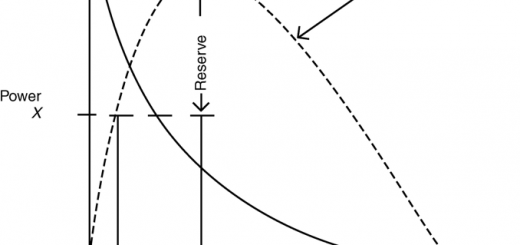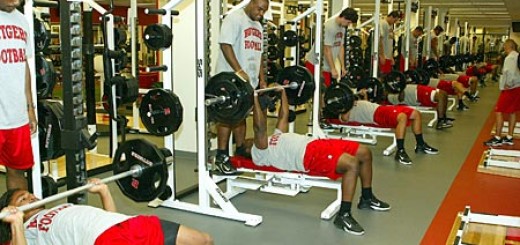Knee Surgery, Recovery and Dr. Mathews
I can say that I’ve been there. Not under the knife, but recovering from a devastating knee injury. It sucked. I wish I had read THEN what I know NOW. Many thanks to the Dr. Mathews of the world and those like her.
A DOCTOR’S TIPS FOR KNEE SURGERY RECOVERY
As with most uncommon occurrences in life, they tend to come in multiple numbers. To the misfortune of a few of my newer patients lately, knee surgery seems to be the topic of discussion at my office. From a seventy year old female CEO having her first knee surgery to a former lacrosse player having his fifth knee surgery, these blessed human beings have found their way into my office. They are lucky, not only because of my experience rehabbing knees and balancing the body, but also because I have been in their exact shoes. I get pumped when someone comes to me post-knee surgery because I know that with a push from me they are going to be moving and grooving in no time.
 Half the time I do encounter patients prior to going under the knife. If that is the case, I have them train for their surgery. Going under anesthesia and getting cut open is very traumatic for your body and all the systems involved. Why would you let yourself go prior to going under? My patients are encouraged to get treatment twice a week and train three times a week. Treatment consists of soft tissue work, adjustments, and the use of other modalities. Training, on your own or with a knowledgeable trainer, consists of posterior chain activation along with other movements that are still within your capabilities.
Half the time I do encounter patients prior to going under the knife. If that is the case, I have them train for their surgery. Going under anesthesia and getting cut open is very traumatic for your body and all the systems involved. Why would you let yourself go prior to going under? My patients are encouraged to get treatment twice a week and train three times a week. Treatment consists of soft tissue work, adjustments, and the use of other modalities. Training, on your own or with a knowledgeable trainer, consists of posterior chain activation along with other movements that are still within your capabilities.
When I encounter patients post-surgery, I evaluate swelling and pain, muscle activation patterns, and range of motion of not only the knee but the hip, ankle, and lumbar spine as well. Every joint must function optimally so there will be no added stress on the knee. Everyone will progress at a different rate. Your chiropractor, trainer, or physical therapist will know your abilities and advise you accordingly.
For the first two weeks, decreasing the swelling and reaching full passive range of motion is key. Ice for ten minutes every hour the first couple of days after surgery. Work the range of motion between icing sessions. Movement is crucial so do something every day that will make you better. A lot of you CrossFitters out there have access to elastic bands. Utilize those thick green bands to keep your hip and ankle mobile in the first two weeks post surgery.
Achieving full range of motion is a huge accomplishment. Once full range of motion is attained, you can add weight-bearing exercises. This includes squats, lunges, step-ups, and so on. I don’t believe in partial squats, partial lunges, or partial anything. If you are going to do the movement, you had better go through the full range of motion or you are predisposing yourself to injury. Squats to ninety degrees stress the knee more than going to full depth. Do the movement correctly and slowly so you train your muscle activation patterns correctly.
 All individuals and knee surgeries are different. People progress at different rates and heal at their own time. Be patient with yourself and give yourself praise for the accomplishments you make along the way. Full ACL reconstructive surgery puts you on the injured reserve list far longer than arthroscopic surgery for a meniscus. As I’ve shared with you, reaching full range of motion is so vital for your recovery. If it takes you five days or three months, you have to gain back your range of motion before asking your body to squat heavy or run a marathon.
All individuals and knee surgeries are different. People progress at different rates and heal at their own time. Be patient with yourself and give yourself praise for the accomplishments you make along the way. Full ACL reconstructive surgery puts you on the injured reserve list far longer than arthroscopic surgery for a meniscus. As I’ve shared with you, reaching full range of motion is so vital for your recovery. If it takes you five days or three months, you have to gain back your range of motion before asking your body to squat heavy or run a marathon.
Below are some tips to keep in mind for your road to recovery:
- 1-10 days on crutches is completely common.
- Passive range of motion should be initiated immediately after surgery.
- Begin weight bearing as tolerated.
- Isometric quadriceps and hamstrings activation should be a focus early on.
- Obtaining knee extension should be a priority as it will be difficult.
- Mobility of your ankles, hips, pelvis, and lumbar spine should be maintained.
- Listen to your body daily.
As traumatic and humbling as knee surgery can be, it can also trigger a huge paradigm shift in the way you view your health. Use your knee surgery as a wake up call. Realize you are going to have to learn to contract your quad again, learn to walk again, and that it will be a while before you feel normal again. Find a chiropractor, physical therapist, or someone who knows you and will support you on your road to recovery.
Original Article by: Dr. Lindsey Mathews at breakingmuscle.com





